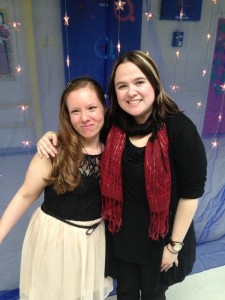| Welcome to “Music Speaks,” the blog of JB Music Therapy. If you’re new here, you may want to subscribe to get new articles easily, join the conversation by commenting on posts, or forward this music message to others who may benefit. |

Studies suggest that music therapy can be a valuable asset to individuals who are working to recover their abilities after a traumatic brain injury (TBI). Highly structured music has been shown to help patients organize their thoughts, emotions, and actions. One high-profile instance of music therapy in recent years has been that of Rep. Gabrielle Giffords, who used music to help her to recover her speech after a gunshot wound left her with a serious brain injury.
Dr. Joke Bradt of the Arts and Quality of Life Research Center at Temple University in Philadelphia, Pa., carried out a Cochrane Systematic Review of music therapy in recovery from brain injury. Her research team reviewed seven studies involving 184 patients. All were controlled studies, meaning they compared music therapy against standard care.
In one example, Music therapy (incorporating rhythm and movement, singing and the use of music listening, music improvisation and composition) improved walking speed by an average of 14 meters per minute, compared to standard therapy.”
What we can tell you for certain is what we are seeing amongst our almost 100 clients at JB Music Therapy who have neurological impairment due to stroke or TBI: a) rhythms compel people to move b) new language is sparked with singing and c) spirits have been lifted during the greatest challenges in their life. Music does more than just affect the physical – it can change the way a person views themselves and their world – from feeling hopeless to hopeful, from incompetent to whole.
JB Music Therapy is fortunate to be connected to some very important leaders in the area of brain injury:
A. Read about the research happening in Calgary Alberta by the internationally renowned Dr. Bin Hu. With support from the Canadian Institutes of Health Research, Dr. Hu and his team have been investigating different types of music devices and their usability in Parkinson’s patients. Preliminary studies of patients using modified iPods look promising, as the devices appear to help patients improve their gait. The music reminds the user to take longer walking steps, according to Dr. Hu. The device provides three R’s: rhythm, reward and a reminder to walk.”
B. Read the story of Brittany Lloyd and her music therapist, Andrea Curry and what has been happening for them over Brittany’s many years of participating in music therapy, after her head injury: Neighbours – Calgary Herald – Andrea Curry and Brittany Lloyd
C. Watch a video of using music therapy with persons with Brain Injury at ARBI (the Association for the Rehabilitation of the Brain Injured):
____________________________________________________________
 Jennifer Buchanan, BMT, MTA is the happy owner of JB Music Therapy and Author of TUNE IN. Our “Music Speaks” Blog aims to inspire you to use music with greater intention and knowledge. Call us to help or and browse our resources here.
Jennifer Buchanan, BMT, MTA is the happy owner of JB Music Therapy and Author of TUNE IN. Our “Music Speaks” Blog aims to inspire you to use music with greater intention and knowledge. Call us to help or and browse our resources here.
